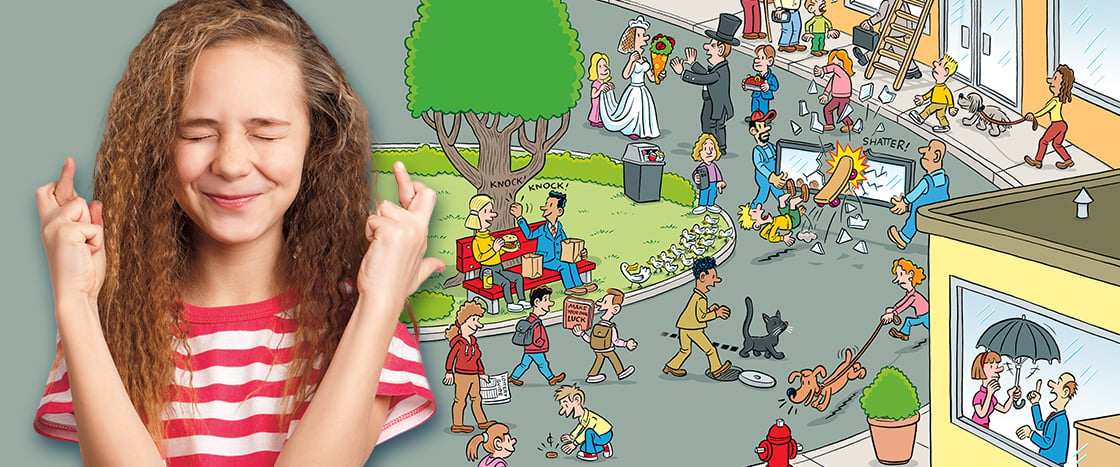Do you knock on wood to prevent bad luck? If so, you’re not alone! Superstitions have been a part of human life for centuries.
Donald Saucier is a psychologist at Kansas State University. He studies superstitions and the reasons people might believe them.
“Many superstitions come from ancient traditions that associated symbols—like animals, numbers, and shapes—with evil or protective properties,” says Saucier. “With superstitions, people believed they could better control what happened to them.”
Take Friday the 13th, for example. This supposedly unlucky date is a relatively new superstition that developed from two older ones.
The number 13 was considered unlucky in Norse, Mayan, and Christian traditions, explains Saucier. Even today, many tall buildings don’t list a “13th” floor. Fridays have been considered unlucky since medieval times. The two superstitions blended into Friday the 13th sometime in the 1800s.
Do you knock on wood to keep bad luck away? You aren’t alone if you do! Superstitions are a part of human life. They have been around for centuries.
Donald Saucier is a psychologist. He works at Kansas State University. Saucier studies superstitions. He explores the reasons people might believe in superstitions.
“Many superstitions come from ancient traditions. These traditions used symbols like animals, numbers, and shapes. They associated the symbols with evil or protective properties,” says Saucier. “People believed they could use superstitions to control what happened to them.”
Friday the 13th is one example. This date is supposed to be unlucky. But that’s a relatively new superstition. It developed from two older superstitions.
Saucier explains that the number 13 was considered unlucky in Norse, Mayan, and Christian traditions. Many tall buildings in today’s world don’t list a 13th floor. Fridays have been considered unlucky since medieval times. The two superstitions blended into Friday the 13th sometime in the 1800s.

